Not all honey is created equal. Manuka honey has been used as a powerful remedy for thousands of years.
Here’s how you can start harnessing the powers of manuka honey to naturally boost your health.
What Is Manuka Honey?
Manuka honey comes from the manuka tree in New Zealand and possesses many therapeutic properties. While real manuka honey is only found in New Zealand, it can easily be found in health food stores across the U.S.
It’s not just a sweetener -- it’s medicine, too! Discover The Benefits of Nature’s Superfood: Honey
Click here to get your FREE copy of our Honey Guide!
When you purchase manuka honey, you may notice abbreviations on the container, such as UMF, which stands for the Unique Manuka Honey Factor. This label indicates that the manuka honey meets the standards of the UMF Honey Association.
Other grading systems include the K factor and MGO. The K factor measures the purity of the honey, as well as things like antioxidants and enzymes. (1) The MGO measures methylglyoxal, which holds antibacterial properties. (2)
So, now that you know a little more about what manuka honey actually is, let’s explore how this unique honey is different from the honey you would find in plastic bear jars at regular grocery stores.
Manuka Honey vs Regular Honey
One of the unique differences between manuka honey and regular honey is its origin. Manuka honey can only be made from manuka blossoms, which are found in unpopulated areas of New Zealand. These manuka blossoms will only bloom between two and six weeks throughout the year.
Once harvested, this special honey contains powerful immune-supporting compounds. Raw manuka honey is not processed at high heat like other honey, allowing the raw honey to hold onto all of the powerful enzymes that lend its wonderful health benefits. Manuka honey is also scored with different systems to determine potency, which regular honey is not.
In terms of taste and texture, manuka honey is quite a bit thicker and has a very unique, sweet flavor. In fact, the higher the UMF rating, the more potent the flavor.
6 Powerful Benefits of Manuka Honey
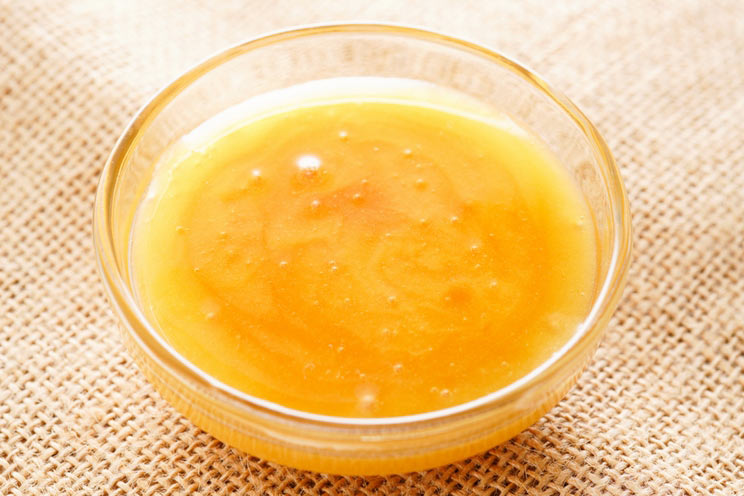
1. Boosts Overall Immunity
You’ll want some manuka honey on hand for cold and flu season. That’s because this powerful honey contains antibacterial properties that support overall immunity.
Studies show that manuka honey holds effective antibacterial benefits against different types of bacteria and fungi. (3) Use manuka honey during the germiest season of the year to fight off the infections that come your way.
2. Fights MRSA
Amazingly enough, this New Zealand honey can fight against staph infections like MRSA. One study found that manuka honey works by interfering with the cell cycle of MRSA, stopping it at its source. (4)
3. Soothes Throat Infections
If you’ve ever taken a spoonful of honey to soothe a sore throat, then you know just how effective it is at calming irritation.
Manuka honey not only soothes the sore throat, but helps fight the infection at its source. Its powerful antimicrobial properties give your body the boost it needs to fight the infection fast. (5)
4. Prevents Oral Infections
While most forms of sugar are not good for oral health, manuka honey is different for its ability to prevent gingivitis. This is super important because part of supporting a strong immune system means maintaining a clean and healthy mouth. One particular study found that manuka-based mouthwashes were successfully able to reduce plaque and gingivitis. (6)
5. Helps Treat Wounds
Manuka honey is so powerful that hospitals frequently apply it to deep wounds to help prevent infection. In particular, it may be able to prevent the development of streptococcus pyogenes, an infection commonly seen in wounds. (7)
6. Supports Gut Health
Gut health is central to immune health. Without optimal gut function, it’s hard to stay healthy throughout cold and flu season.
To help support the gut, try taking manuka honey to support the digestive system, reduce acid reflux symptoms, and fight stomach bacterial-related infections like E. coli and salmonella. (8)
How to Use Manuka Honey
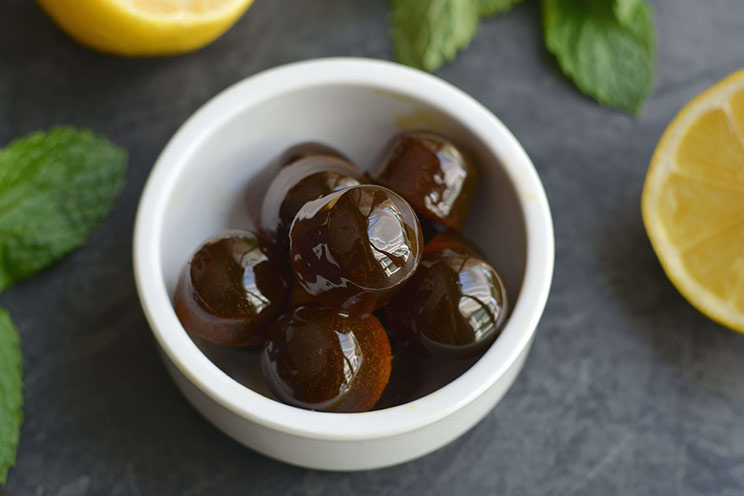
The easiest way to to reap the benefits is to enjoy it right off the spoon (it’s delicious!) You can also add it to smoothies, stir a spoonful into a cup of coffee or tea, or drizzle over a smoothie bowl.
Here are a few other ideas for ways you can use it to benefit your health.
Skin Moisturizer: Manuka honey is great for skin problems like eczema and dry skin. You can apply it straight to your skin, or make your own moisturizer by combining the honey with shea butter and coconut oil.
DIY Manuka Cough Drops: You can make your own immune-boosting turmeric cough drops using by mixing the honey with peppermint tea, and lemon juice.
What to Look for When Buying Manuka Honey
As with anything else, not all manuka honey is created equal, and there are some things to watch out for. Look for the following:
- Does it come from New Zealand?: True manuka honey is going to be sourced from New Zealand, and it should say that right on the jar. Making sure it comes from New Zealand is the only way to ensure authenticity and to make sure you are purchasing a quality product.
- What’s its score? At least one scoring system should be used. More often than not, you will find manuka honey that has a UMF number that measures the antibacterial strength present in the honey. These numbers range from 5+ to 20+. In order to be considered true manuka honey, it must have a UMF of at least 5. However, to get the greatest antibacterial benefits, find one that is at least 10.
- Is it reputable? Another question to ask is whether the company that produces it is reputable. Some well-known manuka honey companies with high-quality standards include Comvita, Wedderspoon, Kiva Certified, and Manuka Health.
- Is there a UMF label? A high-quality and genuine manuka honey will show the UMF company name, and is a great way to ensure authenticity.
Read This Next: Raw Honey vs Processed Honey
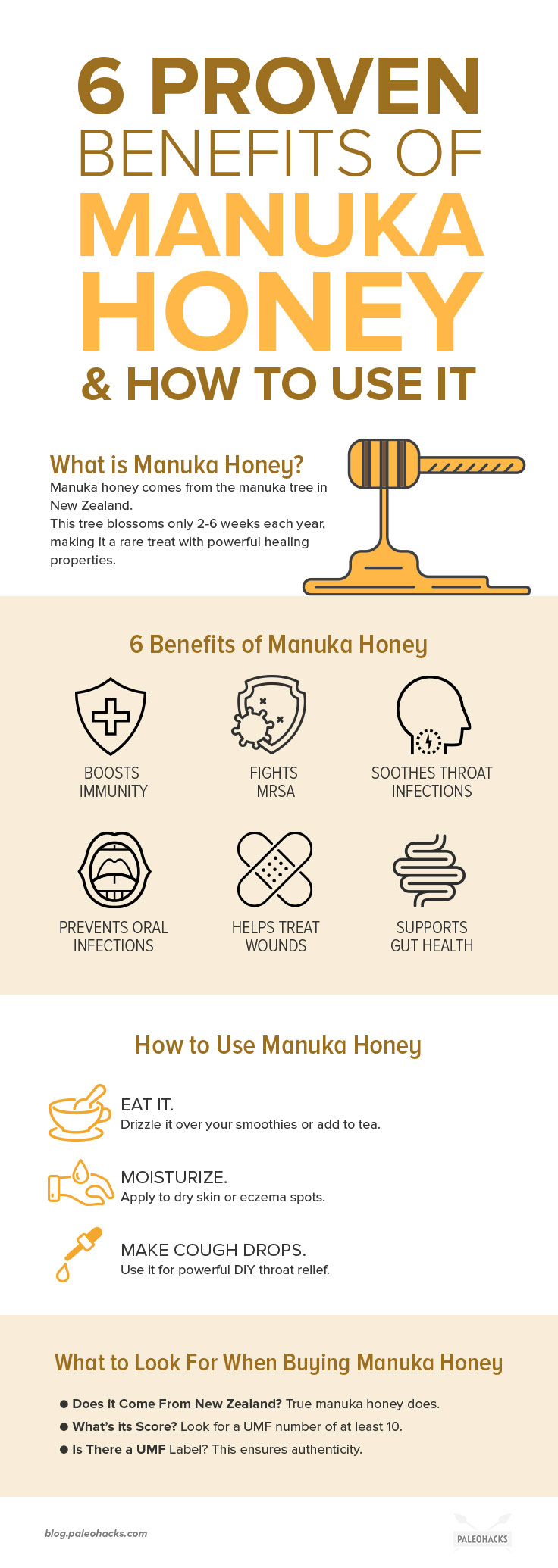


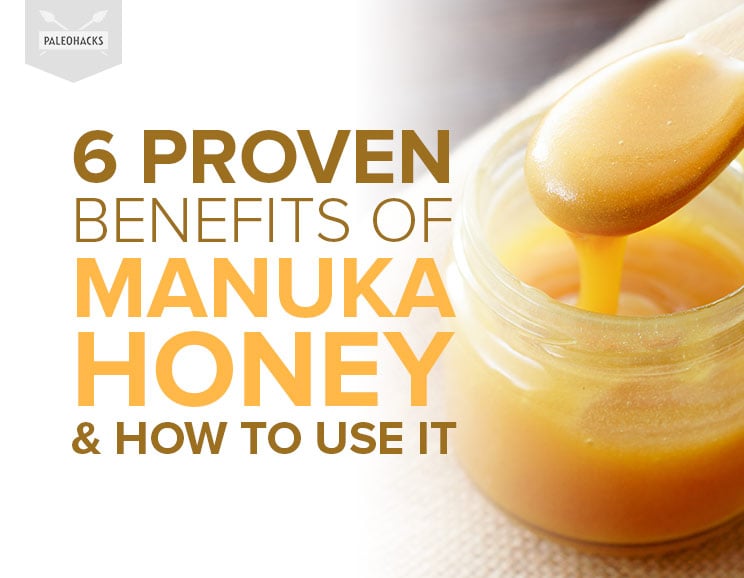
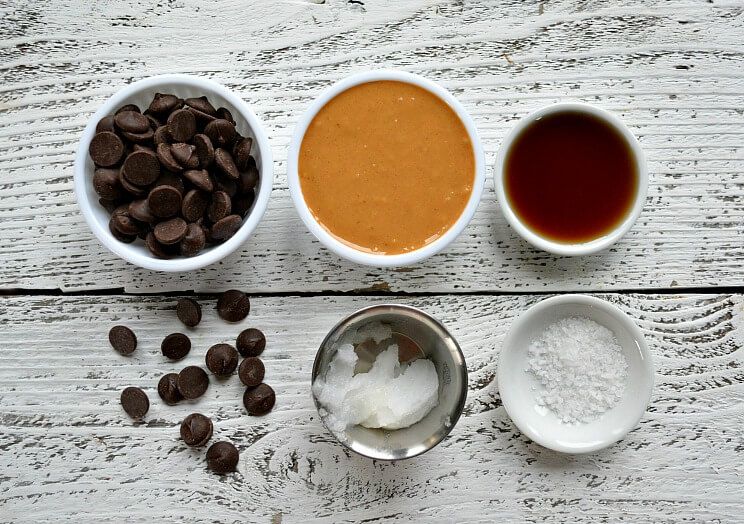 Almond Butter Blueberry Blender Muffins
Almond Butter Blueberry Blender Muffins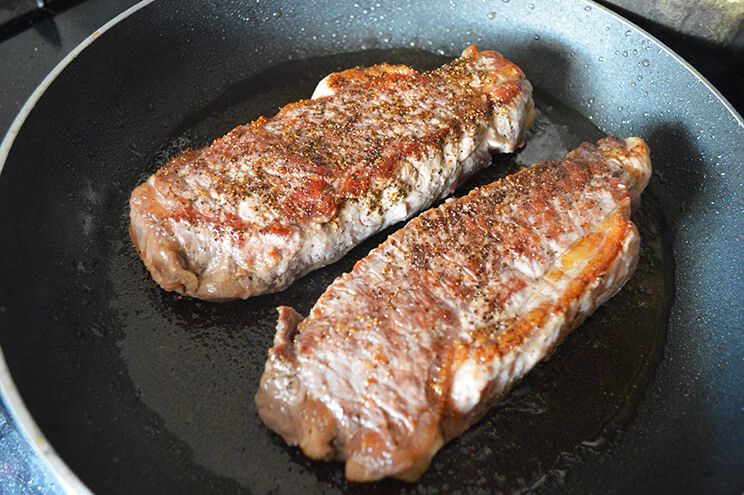
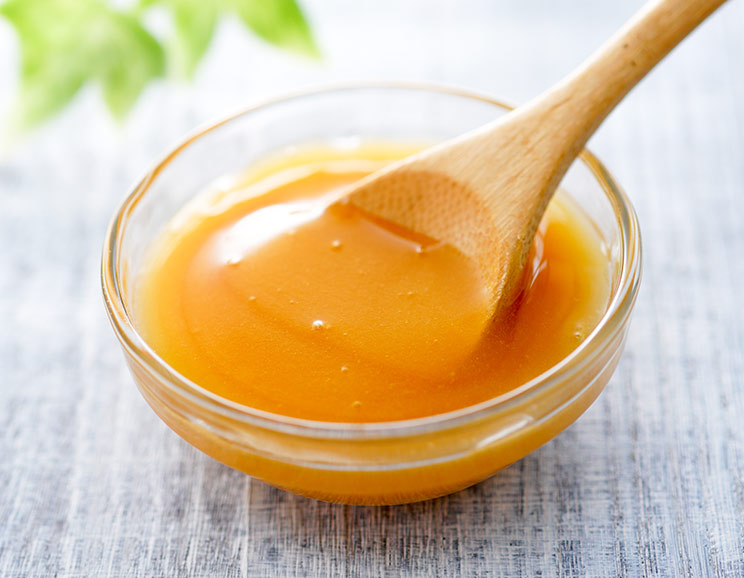
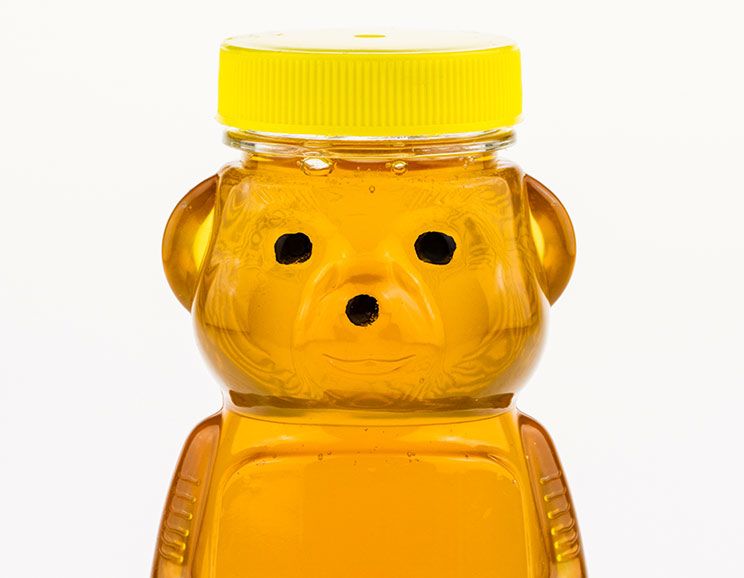
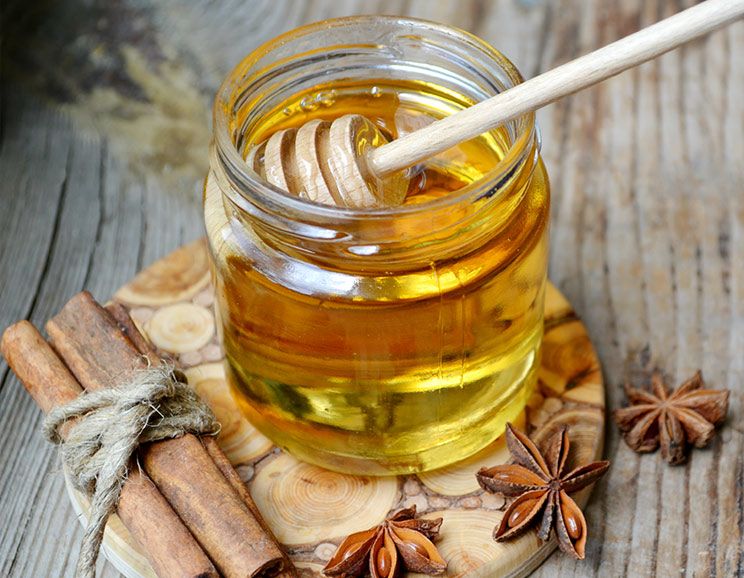

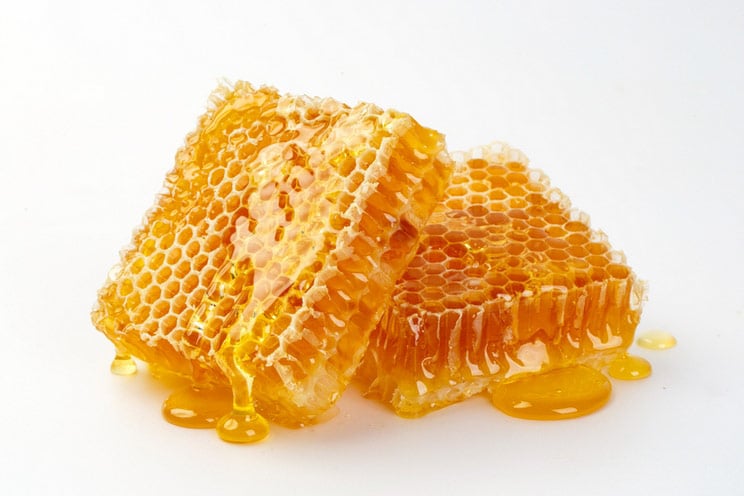
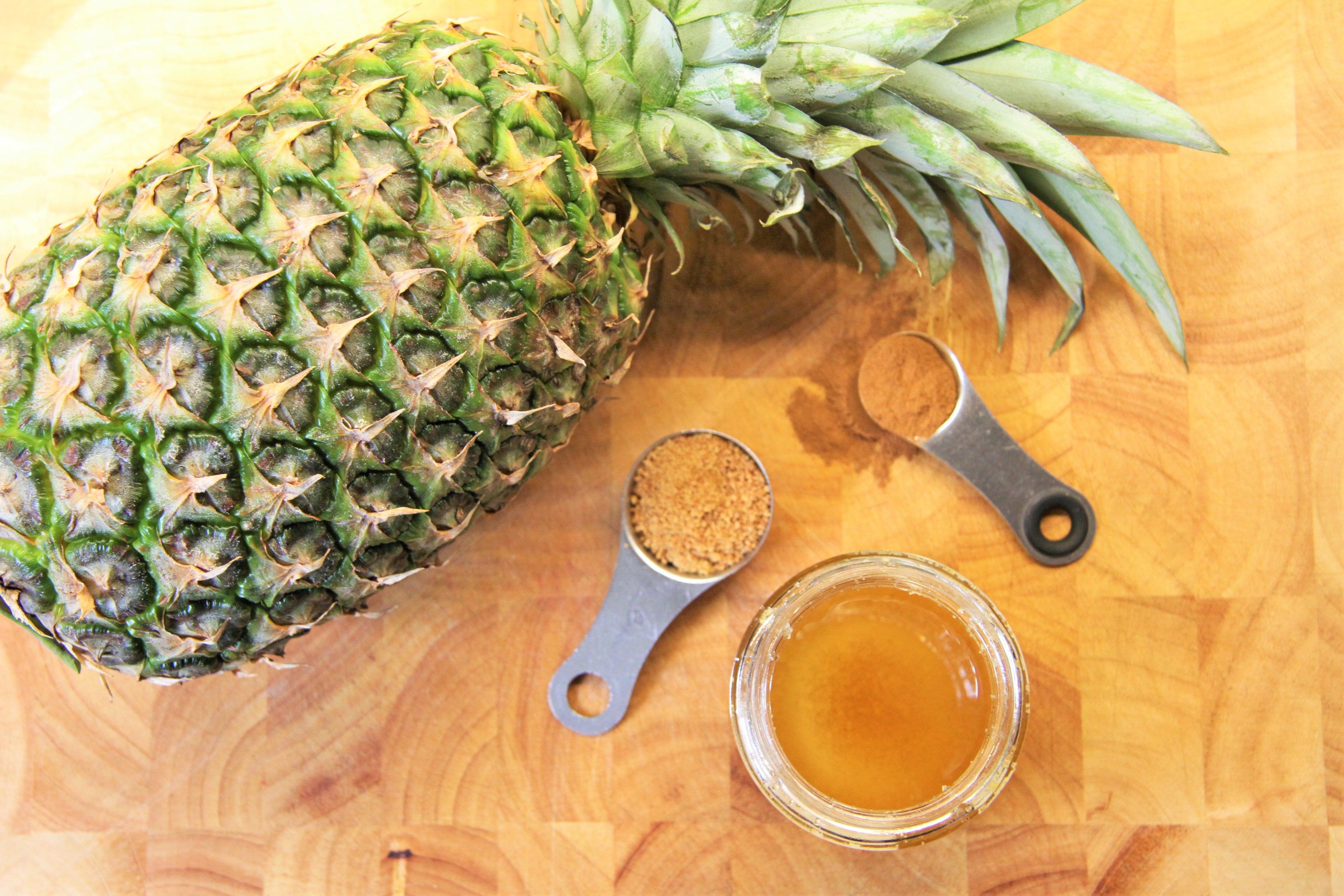
Show Comments